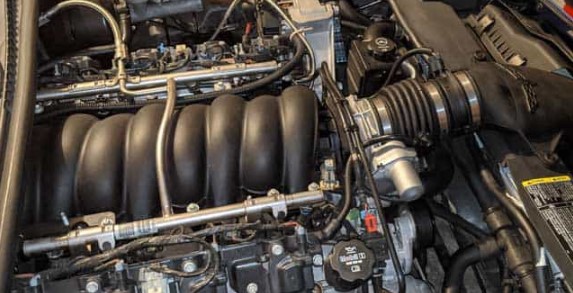When a car is idling or in the process of driving and begins to rev without warning, it can be a serious problem that potentially leads to accidents. Understanding why this occurs is important for avoiding crashes. This article will explain seven main causes of cars revving while in park so that drivers can gain insight into the issue and learn how to properly fix it.
Why Does the Engine Revving On Its Own In Park?
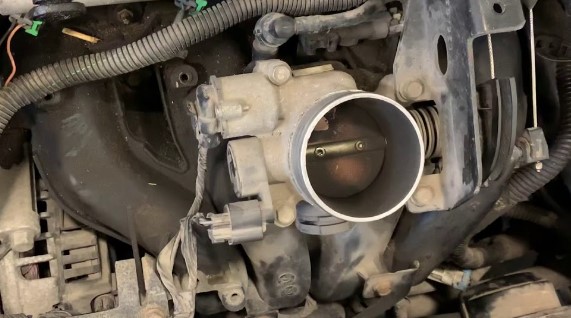
Revving, or increasing a car’s speed, is a process that can lead to major problems if not addressed. Sudden revving on its own in park usually indicates internal engine wear and may have symptoms such as thumping noises or jerking of the vehicle.
There are seven common reasons for your engine revving while in park including a dirty air flow sensor, faulty throttle sensor, damaged O2 sensor, vacuum leak, plugged EGR valve, brittle wiring and defective computer. In order to prevent further damage from occurring to the vehicle it is important to diagnose the cause of this issue and address any necessary repairs promptly.
The factors that cause this problem are explained in detail in the form of a list in the rest of our article.

Reason 1: Dirty Mass Air Flow Sensor
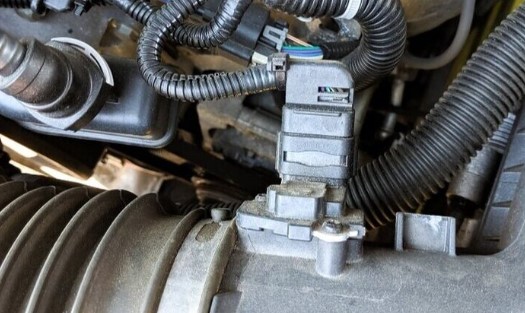
The Mass Air Flow (MAF) sensor is a key component of an automotive engine, designed to sense the mass of air flowing into the motor. This data is then used by the analytical system in order to calculate how much fuel should be injected into the cylinders for optimal performance. Over time, however, dirt and debris can build up on this sensor and cause it to become clogged or dirty. When this occurs, incorrect air intake readings are likely to result – putting strain on your vehicle’s engine and potentially leading to more serious issues down the line.
Fortunately, there are specialized cleaning products available which can help restore your MAF sensor back to its original working condition. CRC spray has been proven effective at eliminating any dust or debris that may have built up over time without leaving behind any film residue that could further damage your car’s parts.

Reason 2: Dirty Throttle Body
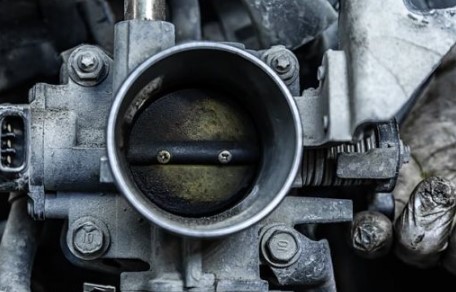
The throttle body is a critical part of any vehicle engine and helps control the amount of fuel being delivered to the combustion chamber. It works by opening or closing its valve in order to regulate airflow, which is monitored by a mass air flow sensor. Unfortunately, dirt can accumulate over time on this device, causing it to not open or close properly, leaving your car revving in park due to irregular air delivery.
Fortunately, cleaning the throttle body and restoring proper functioning is relatively simple when done correctly. Below are some easy steps you can take:
- Gather necessary supplies such as a clamp, electric ratchet, scrubby, torque wrench and inspection mirror; also don’t forget safety glasses and gloves for chemical use
- Disconnect electrical connector for safety
- Unscrew boot and four bolts attaching throttle body
- Soak throttle upside down in chemicals to remove dust/debris
- Place in well-ventilated area until dry
- Put back into engine system
For those wondering why their engine is revving while parked should consider if they have a dirty throttle body – following these simple steps will help ensure that your car’s performance remains at its peak condition!

Reason 3: Faulty O2 Sensor
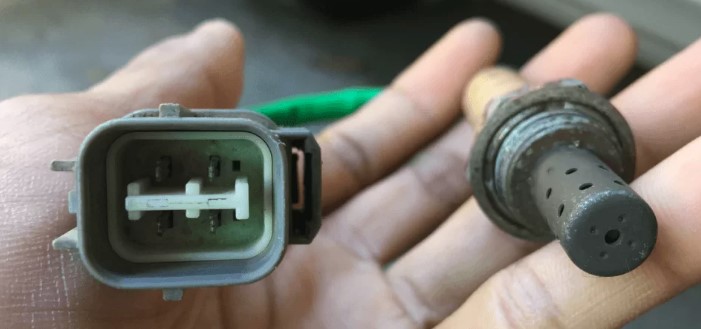
As any car owner knows, the oxygen sensor in a catalytic converter plays an important role in ensuring that an engine runs efficiently. It does this by measuring the amount of air exiting the exhaust pipe and sending data to the headquarters computer for analysis.
Unfortunately, over time water droplets passing through can cause carbon deposits to form on it and also lead to rusting. This impacts its ability to accurately measure air output, resulting in your engine revving even when put in park mode. To identify whether or not your oxygen sensor is broken, you should check for illuminated engine lights or use an OBD2 scanner to get codes from your car’s computer system. The only way forward is replacing it with a new one which typically costs less than $100 USD.
Reason 4: Vacuum Leakage
When a car is revving high in park, the cause may be due to a vacuum leak. Every engine requires air intake and will use a vacuum to compress it into energy for the wheels. This vacuum powers several systems under the hood such as EVAP, brakes and EGR. These hoses can crack or deteriorate over time allowing air to escape through any cracks present which causes an imbalance between what the MAF sensor reads and what’s true in terms of air ratio. The solution is to buy a new hose which isn’t expensive but finding out which hose has caused the issue can be hard so you may need do conduct a smoke test on each one and then identify if there are changes with idle speed afterwards.
Reason 5: Defective EGR Valve
The Exhaust Gas Recirculation (EGR) valve is an important component of a car’s emission control system. It is designed to reduce the amount of exhaust gasses released from the engine, thereby protecting the environment. Despite its intended purpose, this system can cause carbon buildup after only a short period of use. This can lead to improper opening and closing functions, resulting in your car revving wildly while in park.
Fortunately, it is easy to access and purchase components for EGR valves. Replacing them requires minimal skill or experience as most amateur mechanics are capable of doing so without any major difficulties. Those who do not have enough expertise may choose to hire professionals instead; however, they should be aware that such services will often come at extra cost beyond just purchasing the parts themselves.
In conclusion, replacing an EGR valve is one solution for dealing with carbon build-up caused by its malfunctioning state and preventing further environmental damage due to excess emissions from cars idling in park mode. Although more expensive than simply buying new parts, having a professional mechanic handle this job ensures quality repairs which will last longer and ultimately save money in the long run.
Reason 6: Worn Wiring
Under certain conditions, the revving of a car’s engine might not be attributed to a sensor, throttle or vacuum lines. Instead, it could potentially be due to the drive-by cable system that was disconnected and acts as an intermediary for data transmission to your car’s computer.
If your car is recently repaired or serviced, the electrical wires may corrode which can cause them to fray. This in turn would lead to inaccurate data being transmitted between your vehicle and its central computer system. If you experience any difficulty with your auto revving on its own while parked, first check the wiring connection thoroughly before taking further action. It’s important that this issue is addressed sooner rather than later – leaving it unresolved will likely result in more serious damage down the road.
In order to make sure all systems are functioning correctly and without interruption, consider replacing any malfunctioning wires with fresh ones if necessary. This will help ensure optimal performance from both your automobile and its associated components moving forward into the future.
Reason 7: Faulty Car Computer
When it comes to your car’s engine, the computer is one of the most important components. It is responsible for interpreting data from several systems and keeping the engine running smoothly. Unfortunately, should something go wrong with this vital component, it can have serious implications on how well your vehicle runs.
The most common type of computer found in automobiles is known as a PCM (Powertrain Control Module), ECU (Engine Control Unit), or ECM (Engine Control Module). When these computers malfunction, they are unable to translate information into usable data which results in problems such as revving erratically and reduced performance. Repairing these computers is no easy feat either as parts may be hard to come by and costly when available.
What to do if Engine Revving on Its Own in Park?
- A car that revs on its own in park is a dangerous problem, as it can make your car suddenly increase the speed and lead to accidents or crashes. Be extra careful when driving this vehicle for everyone’s safety.
- The throttle body and associated sensors are common culprits behind this issue, so check these automotive parts first to save time and effort.
- If you find something wrong with your car, try fixing it at home by checking the engines and systems of your vehicle before taking it somewhere for servicing or repair work.
- In cases where your vehicle is unable to run, have it towed to the service center workshop for further assessment of what may be causing the engine problems you are facing.
- Remember that even though assessing an engine revving on its own in park can be tricky, there are ways you can solve this issue without having to take professional help all the time – just use some basic mechanical knowledge! All necessary information about the revving problem is provided in this helpful article.
In conclusions, if you’re noticing that your engine is revving on its own when you’re in park, it may be time to have a look at your car’s engine. There could be many different reasons why this might be happening, so it’s important to get the diagnosis correct and find the solution that works best for your vehicle. Remember to always consult with a qualified mechanic before making any changes or repairs to your car.
